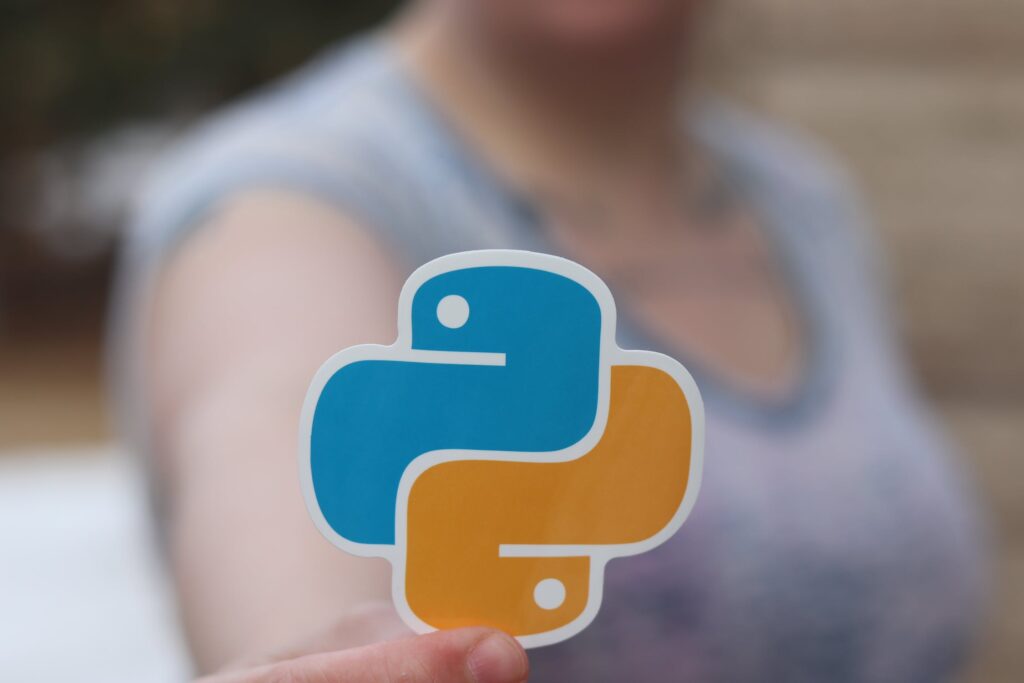Python is a powerful and versatile programming language that has seen explosive growth in recent years. With its easy-to-read syntax and wide range of libraries and frameworks, Python has become a go-to language for developers across a range of industries. If you’re looking to get started with Python, one great way to demonstrate your knowledge and commitment to the language is by earning a PCEP certification.
Table of Contents
The Python Certified Entry-Level Programmer (PCEP) certification is designed for individuals who are new to programming or have limited experience with Python. The certification validates your knowledge of basic programming concepts, data types, control structures, functions, and modules, and is an excellent way to demonstrate your skills and commitment to learning Python.
Why you should earn the PCEP
So why should you consider earning a PCEP certification? Here are just a few reasons:
- Boost Your Resume: Earning a PCEP certification can be a great way to make your resume stand out from the crowd. With the growth of Python across a range of industries, more and more companies are looking for developers who are skilled in the language. Having a PCEP certification can help demonstrate your knowledge and expertise in Python, making you a more competitive candidate for a range of job opportunities.
- Demonstrates Your Commitment to Learning: Earning a PCEP certification requires a significant investment of time and effort. You’ll need to study and practice to become proficient in the topics covered on the exam. By earning the certification, you’re demonstrating your commitment to learning and growing as a Python programmer. This can be especially valuable to potential employers, who want to hire candidates who are passionate and committed to their work.
- Open Up New Career Paths: Python is a versatile language that is used across a range of industries, from web development to data science to machine learning. By earning a PCEP certification, you’ll be opening up new career paths and opportunities that may not have been available to you otherwise.
- Demonstrate Your Commitment to Learning: Earning a certification requires a significant investment of time and effort, and shows that you are committed to learning and developing your skills as a programmer. This commitment to learning is highly valued by employers and can help you stand out from other candidates.
- Provides a Competitive Advantage: Python is a popular programming language, and many job applicants will have experience with it. By earning a PCEP certification, you’re setting yourself apart from other applicants and demonstrating that you have a deeper understanding of the language. This can give you a competitive advantage when seeking employment, as employers will be more likely to choose a candidate who has demonstrated their proficiency through a certification.
- Join a Community of Python Programmers: By earning a PCEP certification, you’ll be joining a community of Python programmers who are passionate about the language and its potential. This community can provide support, resources, and networking opportunities that can help you grow your skills and advance your career.
If you’re interested in learning Python and demonstrating your knowledge of the language, the PCEP certification is an excellent place to start. With its focus on basic programming concepts and its wide range of applications, Python is a language that is both practical and powerful. By earning a PCEP certification, you’ll be opening up new career opportunities, demonstrating your commitment to learning, and joining a community of passionate Python programmers.

PCEP: Exam Information
Exam Name: PCEP Certified Entry-Level Python Programmer Exam Code/Exam Version: PCEP-30-01
Exam Level: Entry
Number of Questions: 30
Format: Single-choice and multiple-choice questions, drag & drop, gap fill | Python 3.x
Passing Score: 70%
Full Exam Price: USD 59
Delivery Channel: OpenEDG Testing Service
Exam Objectives
The test candidate should demonstrate sufficient knowledge of the following concepts:
1. The fundamentals of computer programming, i.e. how the computer works, how the program is executed, how the programming language is defined and constructed, what the difference is between compilation and interpretation, what Python is, how it is positioned among other programming languages, and what distinguishes the different versions of Python;
2. The basic methods of formatting and outputting data offered by Python, together with the primary kinds of data and numerical operators, their mutual relations and bindings; the concept of variables and variable naming conventions; the assignment operator, the rules governing the building of expressions; the inputting and converting of data;
3. Boolean values to compare different values and control the execution paths using the if and if-else instructions; the utilization of loops ( while and for ) and how to control their behavior using the break and continue instructions; the difference between logical and bitwise operations; the concept of lists and list processing, including the iteration provided by the for loop, and slicing; the idea
of multi-dimensional arrays;
4. The defining and using of functions – their rationale, purpose, conventions, and traps; the concept of passing arguments in different ways and setting their default values, along with the mechanisms of returning the function’s results; name scope issues; new data aggregates: tuples and dictionaries, and their role in the data processing.
Exam block #1: Basic Concepts (17%)
Objectives covered by the block (5 exam items)
fundamental concepts: interpreting and the interpreter, compilation and the compiler, language elements, lexis, syntax and semantics, Python keywords, instructions, indenting
literals: Boolean, integer, floating-point numbers, scientific notation, strings
comments
the print() function
the input() function
numeral systems (binary, octal, decimal, hexadecimal)
numeric operators: ** * / % // + –
string operators: * +
assignments and shortcut operators
Exam block #2: Data Types, Evaluations, and Basic I/O Operations (20%) Objectives covered by the block (6 exam items)
operators: unary and binary, priorities and binding
bitwise operators: ~ & ^ | << >>
Boolean operators: not and or
Boolean expressions
relational operators ( == != > >= < <= ), building complex Boolean expressions accuracy of floating-point numbers
basic input and output operations using the input() , print() , int() , float() , str(), len() functions
formatting print() output with end= and sep= arguments
type casting
basic calculations
simple strings: constructing, assigning, indexing, immutability
Exam block #3: Flow Control – loops and conditional blocks (20%) Objectives covered by the block (6 exam items)
conditional statements: if , if-else , if-elif , if-elif-else
multiple conditional statements
the pass instruction
building loops: while , for , range() , in
iterating through sequences
expanding loops: while-else , for-else
nesting loops and conditional statements
controlling loop execution: break , continue
Exam block #4: Data Collections – Lists, Tuples, and Dictionaries (23%) Objectives covered by the block (7 exam items)
simple lists: constructing vectors, indexing and slicing, the len() function
lists in detail: indexing, slicing, basic methods ( append() , insert() index() ) and functions ( len() , sorted() , etc.), del instruction, iterating lists with the for loop, initializing, in and not in operators, list comprehension, copying and cloning
lists in lists: matrices and cubes
tuples: indexing, slicing, building, immutability
tuples vs. lists: similarities and differences, lists inside tuples and tuples inside lists.
dictionaries: building, indexing, adding and removing keys, iterating through dictionaries as well as their keys and values, checking key existence, keys() , items() and values() methods strings in detail: escaping using the \ character, quotes and apostrophes inside strings, multiline strings, basic string functions.
Exam block #5: Functions (20%)
Objectives covered by the block (6 exam items)
defining and invoking your own functions and generators
return and yield keywords, returning results,
the None keyword,
recursion
parameters vs. arguments,
positional keyword and mixed argument passing,
default parameter values
converting generator objects into lists using the list() function name scopes, name hiding (shadowing), the global keyword.
Career paths for Python programmers:
Python is a versatile language and is used in a wide range of industries, making it an excellent choice for anyone interested in a career in programming. Here are some common career paths for Python programmers:
- Web development: Python is used to build web applications using frameworks like Django, Flask, and Pyramid. Web developers who specialize in Python can expect to earn an average salary of $90,000 to $140,000 per year.
- Data analysis/science: Python is widely used for data analysis and scientific computing, thanks to its libraries like NumPy, Pandas, and SciPy. Data scientists and analysts who use Python can expect to earn an average salary of $110,000 to $160,000 per year.
- Machine learning and artificial intelligence: Python is the go-to language for machine learning and AI thanks to its libraries like TensorFlow, Keras, and PyTorch. Machine learning engineers and AI developers who specialize in Python can expect to earn an average salary of $130,000 to $190,000 per year.
- DevOps: Python is also used extensively in DevOps, for tasks such as automation, scripting, and configuration management. DevOps engineers who use Python can expect to earn an average salary of $115,000 to $150,000 per year.
- Software development: Python can be used for general software development, creating everything from desktop applications to mobile apps. Software developers who use Python can expect to earn an average salary of $90,000 to $140,000 per year.
Python programmers generally earn competitive salaries compared to other programming languages, thanks to its versatility and popularity.
If you want to learn more about threats in Cybersecurity today, take a look here.


